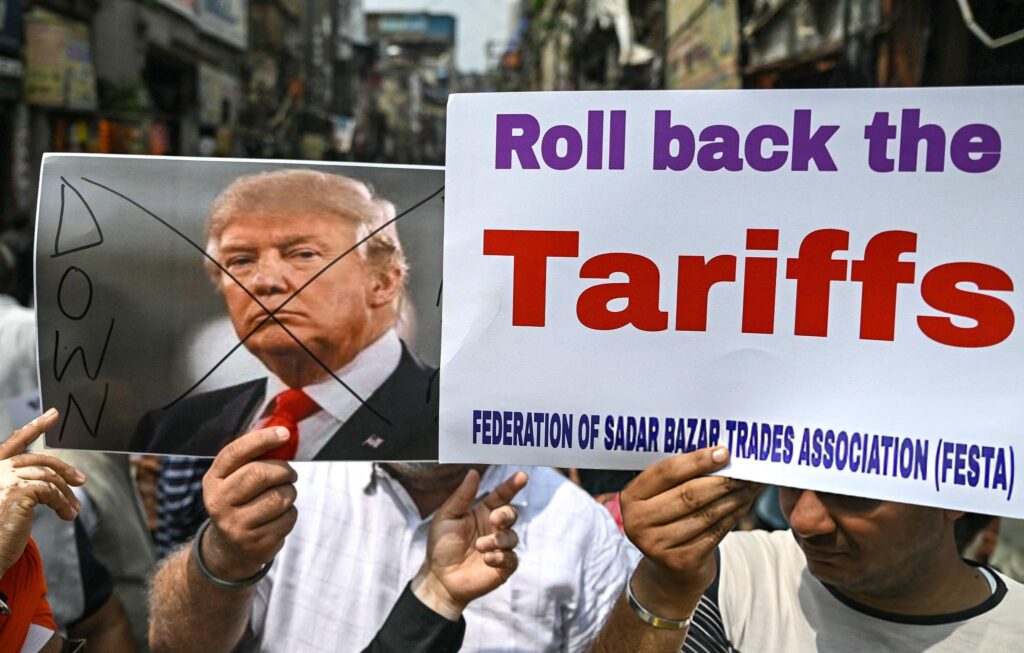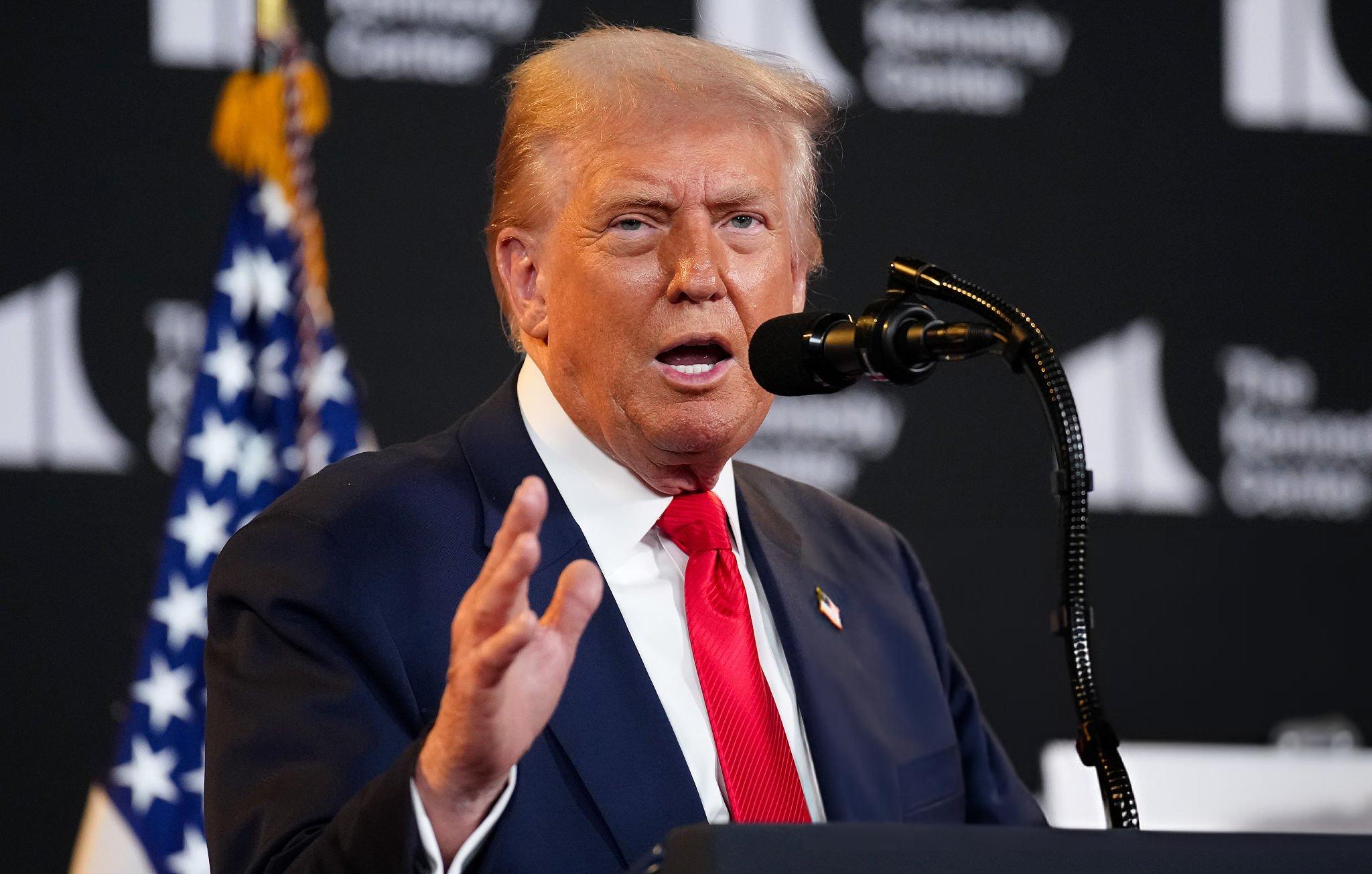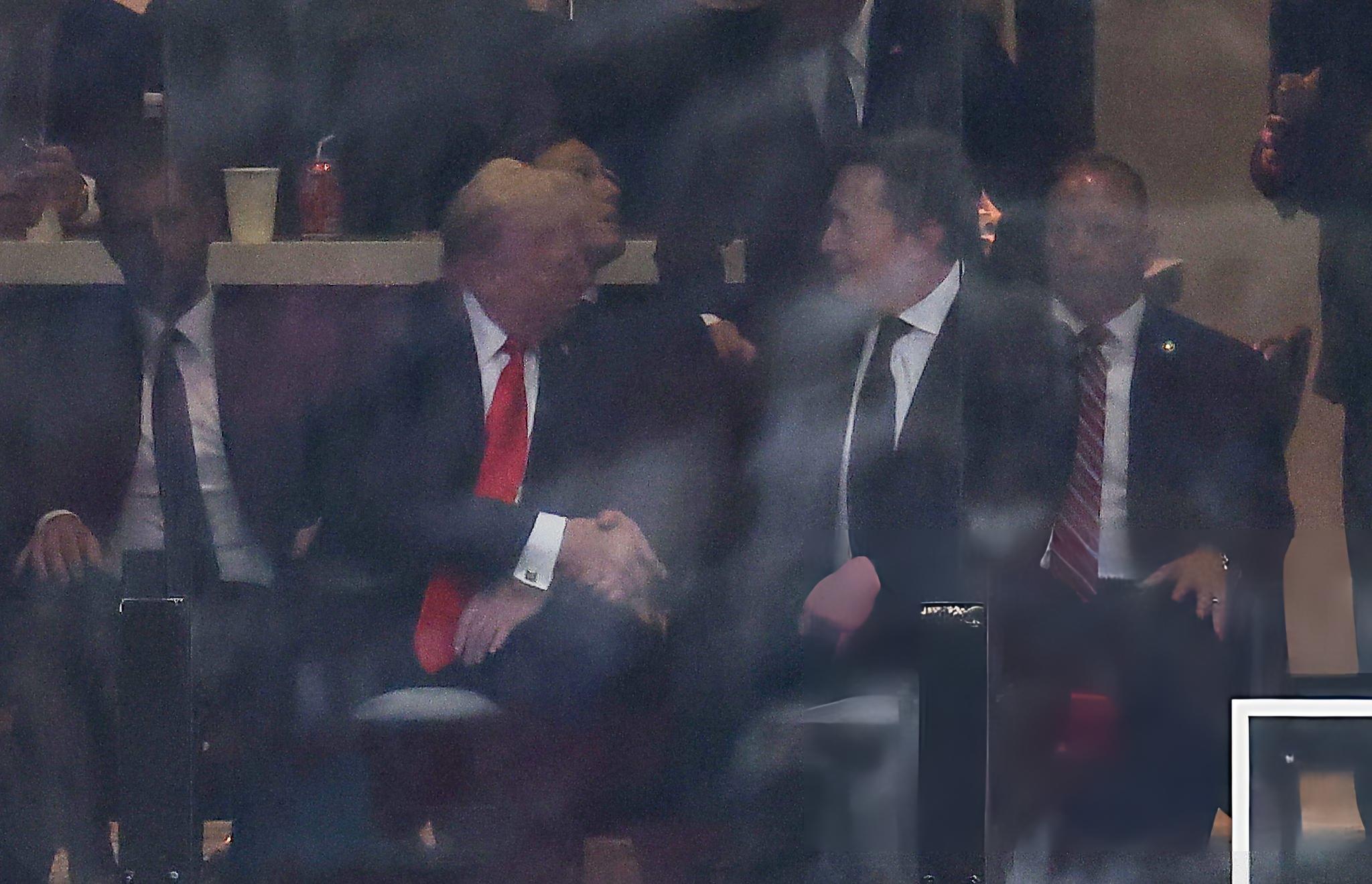Most of Donald Trump’s global tariffs were ruled unlawful by a U.S. federal appeals court, which found the emergency law he invoked does not let presidents impose tariffs; however, the court left the duties in place until mid-October as the administration seeks Supreme Court review.
What the judges decided
The U.S. Court of Appeals for the Federal Circuit concluded that the International Emergency Economic Powers Act does not clearly authorize tariffs, a power assigned to Congress, and thus many recent tariff programs exceeded delegated authority, according to the court’s en banc decision.
The ruling said IEEPA’s text lacks any mention of tariffs or duties and does not include the procedural limits that would typically constrain taxing measures, rendering broad “reciprocal” and country-specific tariffs invalid as contrary to law, with coverage describing a 7–4 split that produced a controlling majority.
Also Read: Zelenskyy is now twice as popular as Donald Trump in the US
Which tariffs are hit and which are not
The decision targets Trump’s April “reciprocal” tariffs covering most trading partners, along with added IEEPA-based levies on China, Mexico, and Canada tied to fentanyl and border concerns, which the court found fell outside IEEPA’s scope. contrast, the ruling does not reach tariffs issued under other statutes, including Section 232 measures on steel and aluminum, which were recently expanded to a 50% rate and to hundreds of additional product categories through Commerce actions, leaving those measures intact for now.

Legal and trade advisories had noted that the Court of International Trade struck down the IEEPA tariffs in May, and the Federal Circuit largely affirmed that view while keeping Section 232 duties outside the case.
What happens next
The appeals court stayed its mandate until about October 14, so collection continues at the border while the administration petitions the Supreme Court for review under the temporary pause. Trump said “ALL TARIFFS ARE STILL IN EFFECT” and vowed to appeal, citing the stay even as the legal basis for many duties faces heightened scrutiny in the coming weeks.
Businesses and trading partners are operating under near-term status quo but with greater uncertainty, since a Supreme Court denial or affirmance could unsettle tariff collections and agreements built on the now-invalid programs.
Also Read: Alison Balsom to bid farewell at Last Night of the Proms 2025
Why it matters for trade and markets
The decision weakens a central piece of Trump’s strategy of using sweeping tariffs as leverage in talks with allies and rivals, compressing timelines for any new arrangements referenced in recent reporting.
Partners such as India and others drawn into “reciprocal” or add-on tariffs are reassessing their positions, even as separate Section 232 expansions on steel and aluminum continue, creating a patchwork of measures under differing legal bases.
Litigants and amici welcomed the ruling as reaffirming IEEPA’s focus on sanctions and asset freezes rather than open-ended tariffs, while the administration prepares its Supreme Court bid during the stay period.




